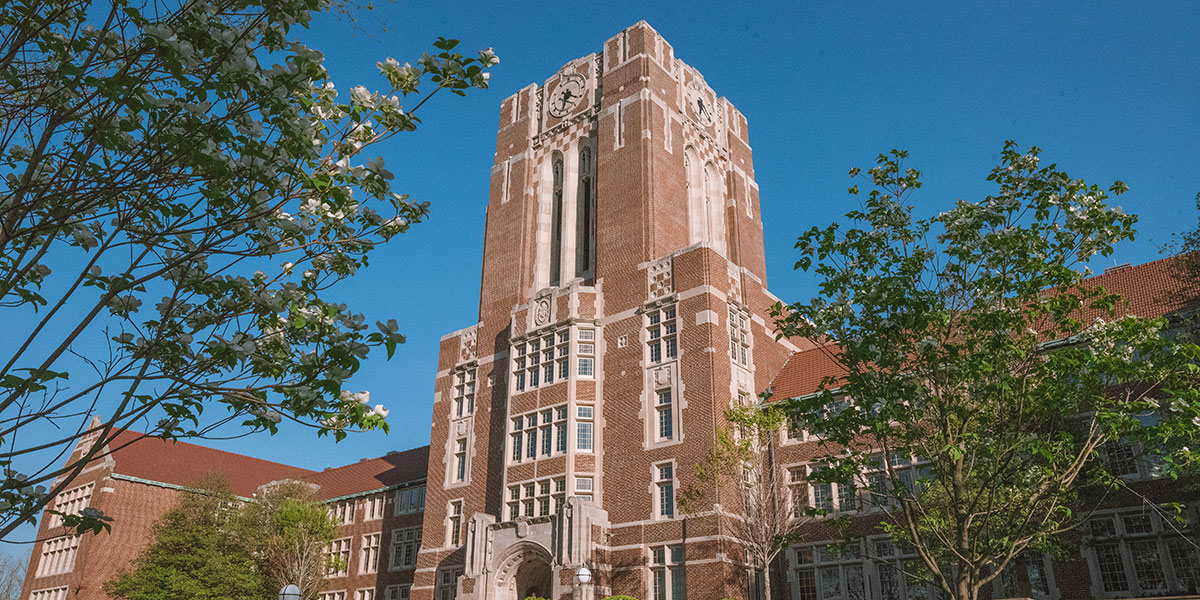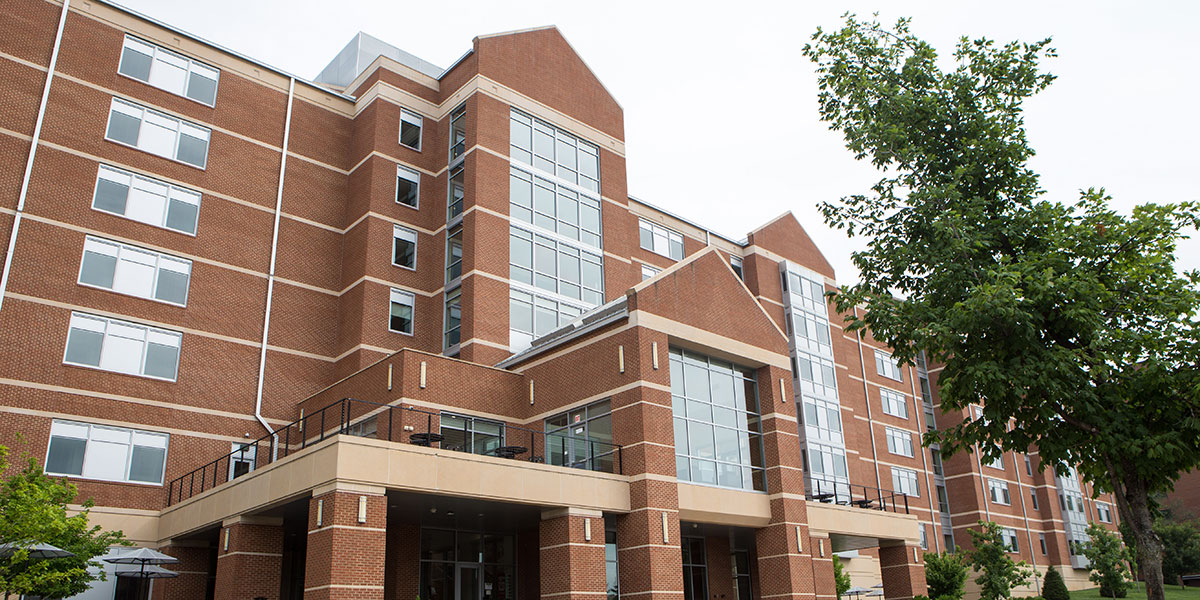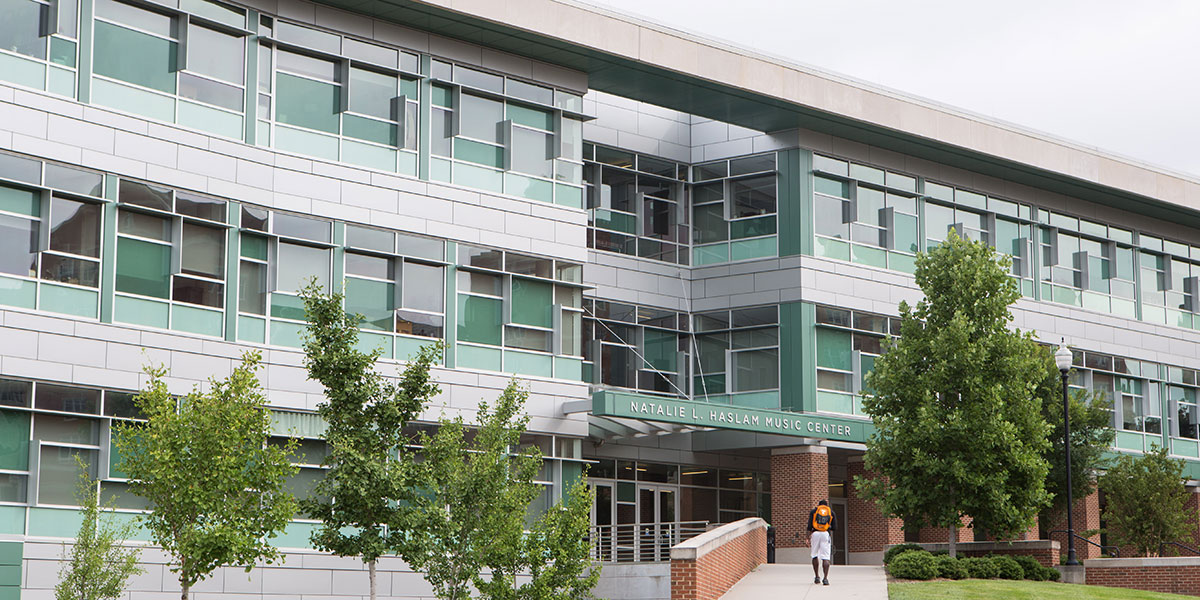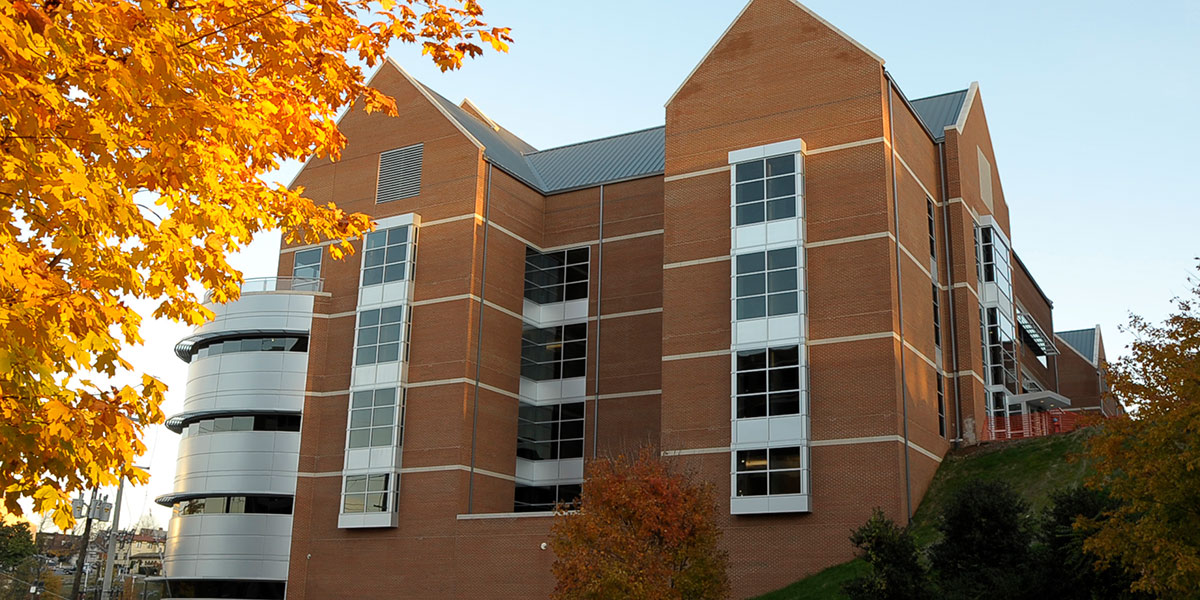Being the largest university in the state of Tennessee, it’s no surprise that our energy footprint can be rather large. For our campus to reach its sustainability goals, we must take responsibility for how our energy is generated and how we utilize it.
Green Revolving Fund
Enacted in 2013 with an initial investment of $100,000, the Green Revolving Fund has been used to finance projects that reduce UT’s energy use. These funds are used for retrofitting and energy-saving projects in campus buildings. After the return on investment (ROI) is met, the additional savings over a five-year period are placed back into the Revolving Fund for future project funding.
Energy Use
The Sustainability Master Plan states that our campus energy goal is to reduce energy consumption to 1992-93 levels by 2030. This goal aims to reduce our usage to 15kWh per square foot of campus. The graph below shows the kWh of energy consumed per square foot throughout the years.

Clean Energy
The University of Tennessee aims to increase renewable energy procurement to make up at least 20% of total electricity use by 2030. Achieving this goal would lower the carbon footprint of the University by ~19%. Here are some examples of sustainable energy projects currently happening on campus.
Solar
Solar panels are installed on campus above EV charging stations. These panels supply energy to be supplemented back into the grid when charging vehicles. Since being installed in 2012, these panels have produced over 250,000kWh of energy total. Additionally, new solar charged outdoor tables are being installed in various outdoor locations on campus.
Electric Vehicle (EV) Charging Stations
UT has 4 areas of electric vehicle charging stations located on campus (six by Staff Lot 23, six on the Agriculture Campus, six at the 11th Street Garage and six at Facilities Services Complex). Students, faculty, staff, and visitors can use these stations by obtaining a permit with Parking & Transit.
Wind Turbines
In April 2018, a wind turbine was installed at the Facilities Services Complex. In 2020, students and faculty members set out to collect data across several points on campus. The data collected will be used in research and could potentially aid arguments for installing future wind turbines.
Geothermal
Sorority Village sits on top of a geothermal vent which helps reduce energy consumption by drawing from the natural phenomenon. Geothermal provides the majority of heating and cooling for the village.
Energy Efficiency
LED lighting upgrades are funded through the Green Revolving Fund in all buildings to reduce campus energy usage. LED lighting uses about 75% less energy and lasts 25 times longer than incandescent lighting.
Sustainable Building Policy
This policy establishes the United States Green Building Council’s (USGBC) Leadership in Energy and Environmental Design (LEED) rating system as the standard for new construction and major renovation projects at UT that cost more than $5 million. Under the policy, all such projects must be designed to meet the minimum requirements of LEED for New Construction and Major Renovations (LEED-NC). Small-scale renovations utilize the LEED for Commercial Interiors (LEED-CI) rating system as applicable.
LEED Silver Certified Buildings
Energy Conservation
In order to ensure UT’s buildings operate with the lowest environmental impact possible, the energy conservation policy states that temperatures in campus will buildings must be set to 68 degrees during warming seasons and to 76 degrees during cooling seasons. Enacted in 2008, this policy identifies energy conservation as a significant issue for UT and outlines steps to manage and reduce campus energy consumption. Every degree change in the heating season shaves 2 percent from the overall energy use, while each degree change in cooling season saves 4 percent. Read more about this and other policies.
Tips to Conserve Energy
- Turn off your computer when you are not using it for long periods of time, or put it on sleep mode for shorter periods when it is not in use.
- Keep blinds closed during the summer for a cooler room.
- Open the blinds during the winter months for natural light and to have the sun help heat up your room.
- Turn the lights off when you leave the room.
- Use a power strip for all appliances and turn it off when not in use.
- Add an extra layer before you turn the heat up.
- Schedule printing, copying, and other energy-intensive office work for after 11:00 a.m. in the winter and before 2:00 p.m. in the summer.
- Cook and reheat food with microwaves instead of conventional ovens.
- When possible, take the stairs and limit your use of elevators.
- Power down unused computers and other electronic appliances, set computers to sleep mode when not in use for ten minutes or more.
More information on energy vampires.
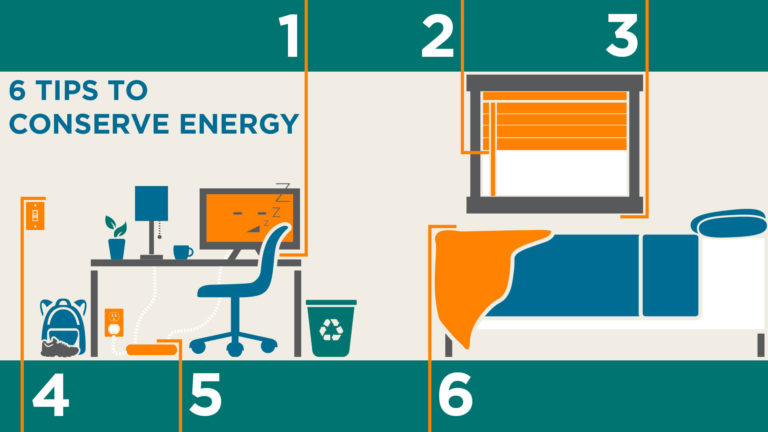
Peak times for energy use are determined by the Tennessee Valley Authority and vary by season. Peak energy use billing, which became mandatory for TVA’s largest customers in 2011, provides the campus with an opportunity to save on energy costs by adjusting study, work, and play habits.
Winter
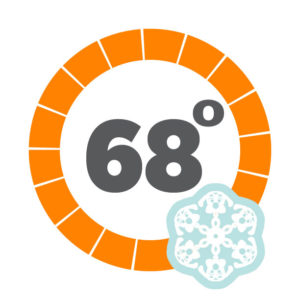
During the winter months, peak energy hours are from 5am-11am, and run Mondays through Fridays between December 1st to March 31st.
Summer
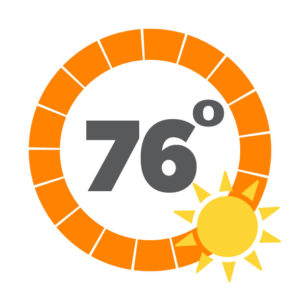
During the summer, peak energy hours are from 2pm- 8:30pm therefore it is best to plan high energy activities for the morning.

